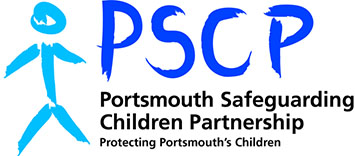Online Safety
Children and young people spend a lot of time online and may face risks such as cyberbulling or being exposed to inappropriate content. Whether you’re unsure about what happends online or are familiar with new technoloyg, it’s important that you talk to your child about staying safe.
What do children do online?
Children and young people go online for a variety of reasons and use a number of different sites:
- search for information or content on search engines such as Google and Bing
- use social networking sites such as Facebook and Twitter
- share images and watch videos through websites or mobile apps like Instagram, Pinterest, Snapchat and YouTube
- chat with other people through online games, games consoles, webcams, and social network tools like WhatsApp
What are the risks and dangers to children online?
Children and young people may face the below risks:
- Cyberbulling – this is bullying that takes place online, social networking websites or through mobile phones and includes sending threatening or disturbing text messages, homophobia, racism or sexism, making silent, hoax or abusive calls, creating and sharing embarrassing images or videos, ‘trolling’ which is the sending of menacing or upsetting messages on social networks, chat rooms or online games, excluding children from online games, activities or friendship groups, setting up hate sites or groups about a particular child, encouraging young people to self-harm, voting for someone in an abusive poll, hijacking or stealing online identities to embarrass a young person or cause trouble using their name, sending ‘sexts‘ to pressure a child into sending images or other activity.
- Exposure to inappropriate content – this may include pornography, child abuse images, dangerous advice encouraging eating disorders, self-harm or suicide, and excessive violence or race hate materials
- Grooming and sexual abuse – this is where someone builds an emotional connection with a young person in order to sexually abuse them. It is easy for groomers to hide their identity online, as children and young people often chat to or become ‘friends’ with people that they don’t know.
- Sexting – is defined as sending sexually explicit messages and/or suggestive images, such as naked photographs. With the continual growth of social media and use of smartphones, tablets and desktops, more and more children are engaging in or being affected by sexting, with the number of reported cases increasing. The Virtual College created this guide to help you understand what sexting is, how schools are protecting children from sexting and what parents can do to safeguard children
- Gambling or running up debts – many online games are free but offer items to purchase or entice with prizes which can lead to gambling or building up debts without realising.
Tips for keeping children safe online
- Talk to your child about how they can stay safe online
- Ask your child what they do online
- Let your child teach you about the online world
- Know who your child is talking to online
- Agree that either yourself or a trusted adult can become ‘friends’ so you can their profile and posts can be seen
- Set rules and agree boundaries
- Be aware of age restrictions – children must be at least 13 to register on most social networking sites and at least 18 for gambling sites
- Use parental and privacy controls
- Check your child knows how to use reporting tools
- Think You Know provides advice on online parenting. There is also further information at Think You Know training.
- Go to our PSCB pages on radicalisation, exploitation, or bullying for more information on these areas
- Vodafone and The Diana Award have set up this digital skills programme to encourage older children to pass on their knowledge
- Parent Zone produces an online magazine Digital Parenting which aims to provide you with the latest expert advice so you can help your children develop the life skills and knowledge they need to use the online world safely and with confidence.
Share Aware
The NSPCC has launched a public education campaign, called Share Aware, to help parents keep their children safe online. The campaign is aimed at parents and carers of children aged 8-12 – the age at which they start doing more online, become more independent and use a greater range of devices. The campaign aims to encourage parents and carers to understand online safety and to have conversations with their children about keeping safe. There is also a downloadable guide (below) and a hard copy booklet for parents, containing top tips for keeping your child safe online, as well conversation starters to help parents have conversations with their children. For more information or to watch the campaign video visit the Share Aware webpage.
Who to contact
Multi Agency Safeguarding Team: 0845 671 0271
Out of Hours Duty Team: 0300 555 1373
NSPCC: 0808 800 5000
CHILDLINE: 0800 11 11
If the matter involves an allegation against a member of staff or volunteer please contact the LADO (Local Authority Designated Officer) on 02392 882500 email LADO@portsmouthcc.gov.uk
Supporting documents
- Advice for Parents and Carers on Cyberbullying
- NSPCC Tips to keep your child safe online
- NSPCC Online safety checklist for under 5s
- NSPCC Online safety checklist for primary school children
- NSPCC Online safety checklist for teenagers
- NSPCC Cyberbullying checklist
- NSPCC Sexting safety checklist
- NSPCC Online grooming safety checklist
- ‘SelfieCop‘ app
- Snapchat guide for parents
- UK Safer Internet Centre – Parents Resource Pack
- NSPCC – A parent’s guide to being Share Aware
